My Heart Called Me to Social Justice Ministry
But what if I told you that advocacy is my life’s ministry because direct service broke my heart? It was things like a mission trip to Appalachia in the seminary, serving in soup kitchens, making St. Vincent de Paul visits, or more recently, teaching English and citizenship to resettled refugees from Myanmar that lit my fire for social justice and keep it burning.
But it wasn’t the service per se that affected me so deeply. It was hearing their stories, meeting their families, seeing their deep faith. Encountering Christ in the poor, the elderly, the mentally ill, the addict, is not something you do and then easily go back to your comfortable (SO comfortable!) life. Their faces and stories haunt you. They can make you sob, and they can make you very angry as well, at a society that treats them like garbage.
I remember a quote from a long time ago from someone who saw teeming poverty up close in India, and said that at first, it made him want to scream at God for allowing such suffering. Then he realized that through those suffering faces, God was screaming at him to do something! That’s the way I’ve felt since I was 19, that God is screaming at us to do something – and not just to feed the hungry, but to END HUNGER. Not just to shelter the homeless, but to END HOMELESSNESS in a nation that is surely wealthy enough to do so if it cared to.
That’s when I read the book, Bread for the World, by Art Simon, who founded the organization of the same name almost half a century ago. In it, he outlines the many “root causes” of hunger both in the U.S. and globally, from food production and distribution to international trade rules to foreign aid, and to our own personal attitudes and behaviors. But I never forgot one thing he said in that book:
“All the charity in the U.S. combined is
dwarfed by government assistance.”
In an interview about the book, Simon adds: “Charity is a wonderful thing. Charity is essential and I’m still actively part of charitable efforts in hunger. But charity can only do so much. It’s quite limited in what it can do in the long run. It doesn’t have a sufficient spread to reach people who need the help and it doesn’t have the authority to make decisions for the nation as a whole. To end hunger — even to reduce hunger — we’ve got to get the whole nation behind it.”
Fr. Dehon said something very similar: “Charity is a palliative which is always welcome and often necessary; but it does not attack the root of the evil.” Why then, does advocacy receive such short shrift in the U.S. Province? Some have suggested to me that “direct service” is social justice, and there is a sense in which that is true, but it is not the same as social justice. In a world of social justice, charity would not be necessary. And properly understood, charity really ought to be that which is given in addition to justice, not in place of it.
That is why my ministry is social justice, and political activism, and advocacy. I cannot stop at helping one or a few when as a society we could help everyone in the same situation. As long as these injustices exist, my conscience hears God’s screams to CHANGE IT. I know that I need to serve the poor personally as well as out of my pocketbook, but I know just as well that all who primarily do service need to work for justice and be advocates on occasion as well.
Misperceptions about Social Justice and Catholic Social Teaching
Yet "JPR" still seems controversial to some. Some think it is too "political." Some don't see the value or the difference it makes. Some believe the work of service IS the work of social justice, while others feel that social justice advocates denigrate direct service. Is it possible there is some projection going on there? I’ve even come across several, especially younger and international SCJs (and other seminiarians), who claim that “social justice” sounds to them like socialism. First of all, I wonder why “socialism” is seen as such a deadly evil, but apparently not capitalism, which is assumed to be just. Secondly, this betrays a complete lack of understanding of the Church’s teaching on social justice.
Catholic social teaching is not “left” or “right,” though you can look at individual issues and call their position one or the other. Rather, its hallmark is its consistency – it begins and ends with the dignity of every human person and our sister and brotherhood with each other as children of God. This, not being “conservative,” is what drives the Church’s stance on abortion. This, not “liberalism,” is why the Church calls for social, economic and racial justice, equitable development, and alternatives to war and violence.
All this shows that we are somehow not doing the job we should be doing of integrating social justice into the SCJ formation (seminary formation in general, I would argue). Yet listen to these words from our newly-revised Ratio Formationis Provincialis:
- “Our formation will challenge us to be with the poor in our ministries and in our lives, both by direct service and by working for structural changes. We will be open to letting this ministry affect our prayer and our lifestyle.”
- “To accomplish these ends (“a specifically Dehonian formation”) the following elements are essential: … Formation to Hunger for Social Justice and Protection of Creation…”
- “’Active Presence’ involves direct service to the materially poor in a variety of cultures and working for systemic change.”
- “Social Justice Ministry is a fundamental part of what it means to be a Dehonian.”
- “The goal is that this direct service will lead to a greater sense of solidarity with and compassion for those who are poor.”
- “It is important that studies be accompanied by apostolic experiences of both a direct service and structural change nature so that this combination became the foundation and the spirit of the intellectual study.”
- Effective apostolic work demands that all be given a solid understanding of the social, cultural, political and economic issues facing society.”
- “Our mission in the Church demands a particular attention to the problems of justice, peace, reconciliation and the integrity of creation, and an appropriate and specialized preparation in these areas. As followers of Fr. Dehon, in our studies and our apostolates, we will, to the extent that we can, connect the theology of the Heart of Jesus with the social teaching of the Church.”
However, direct service is given no “pride of place” (although it is most people’s first and too many people’s only experience of “active presence” among the poor). It is made clear more than once that formation, ministry, theology and the Congregation’s very mission itself are expressed not only through direct service but also “working for structural change.” “Active Presence” involves not only direct service but also “working for systemic change.” For students, it is “the combination” of direct service and structural change that must “become the foundation and the spirit of intellectual study.”
Essential to Dehonianism, in fact, is a “hunger” for social justice and protection of creation. Followers of Dehon should try to “connect the theology of the Heart of Jesus with the social teaching of the Church. It must affect not only our ministry but our spirituality, our prayer, our lifestyle.
Finally, to be effective ministry must have a “solid understanding of the social, cultural, political and economic issues facing society.” Carrying out the mission entrusted by Christ to his Church demands [my emphasis] a particular attention to the problems of justice, peace, reconciliation and the integrity of creation, and “appropriate and specialized preparation in these areas” is necessary.
How then can there be any controversy about JPR? And I won’t even go into your Constitutions and Rule of Life, but if you’re curious see Nos. 32, 36, 50, 51 and 61, as well as 34 General Directory (2) (last bullet), 51 General Directory (5) and #50 in the Provincial Directory.
Parting Words
I wanted to tell you my personal story of why I got into this work and why I am so passionate about it, and offer some reflections from an “outsider” on Dehonianism and social justice. Thanks for reading, thanks for everything you’ve read and considered these past seven years, and thank you for all that the US Province has done and will do to live out the vision of Fr. Dehon. May our paths cross again.
I leave you with the words of Filipino priest Edicio de la Torre:
| Why are we here, a small group holding our torches? Do we think that we can dispel the darkness of the night? No, that would take millions of torches. The massive problems we face will not be overcome by a few. We need many, many more. So why do we hold our torches here in the night? So that there is enough light to see our companions beside us, and reassure ourselves that we are not alone in the dark. Because what we fear is not so much the dark, but being alone in the dark. And from afar, others will see our small brave community, and will feel greater courage to join. Because it is easier for others to join a group that has already taken a stand, rather than starting by themselves. Let us believe and imagine in our mind’s eye, that there are other groups of people who are holding their torches in the dark. Time will come when they will link to one another, and our lights will merge and be more powerful than the darkness. |
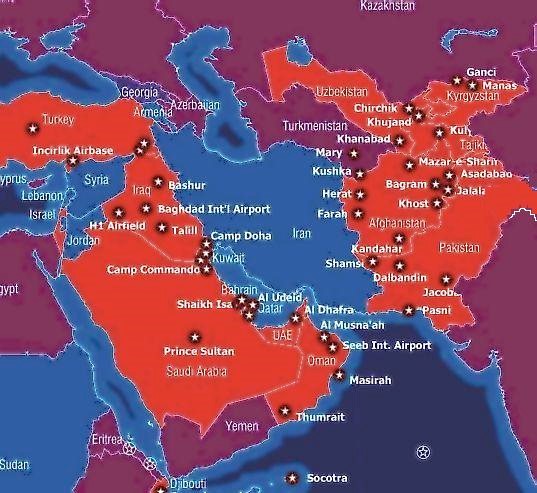
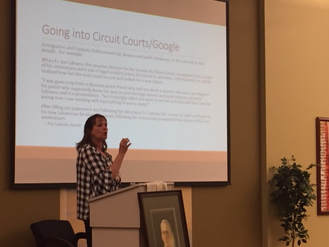
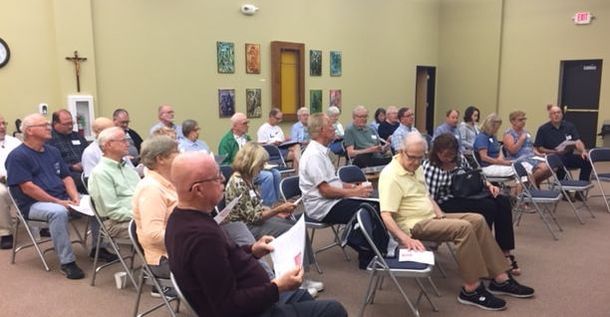
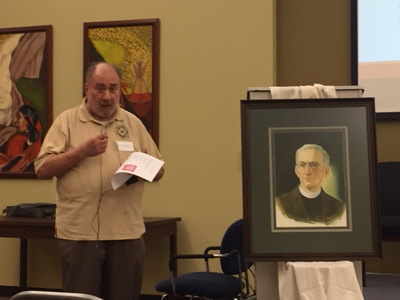
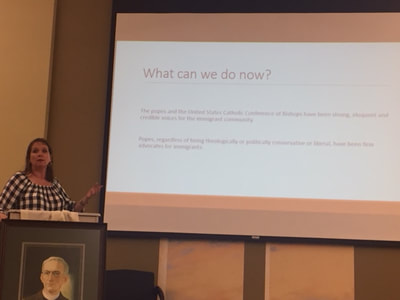
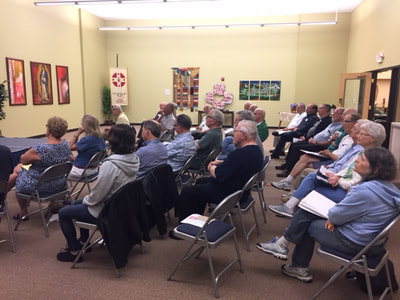
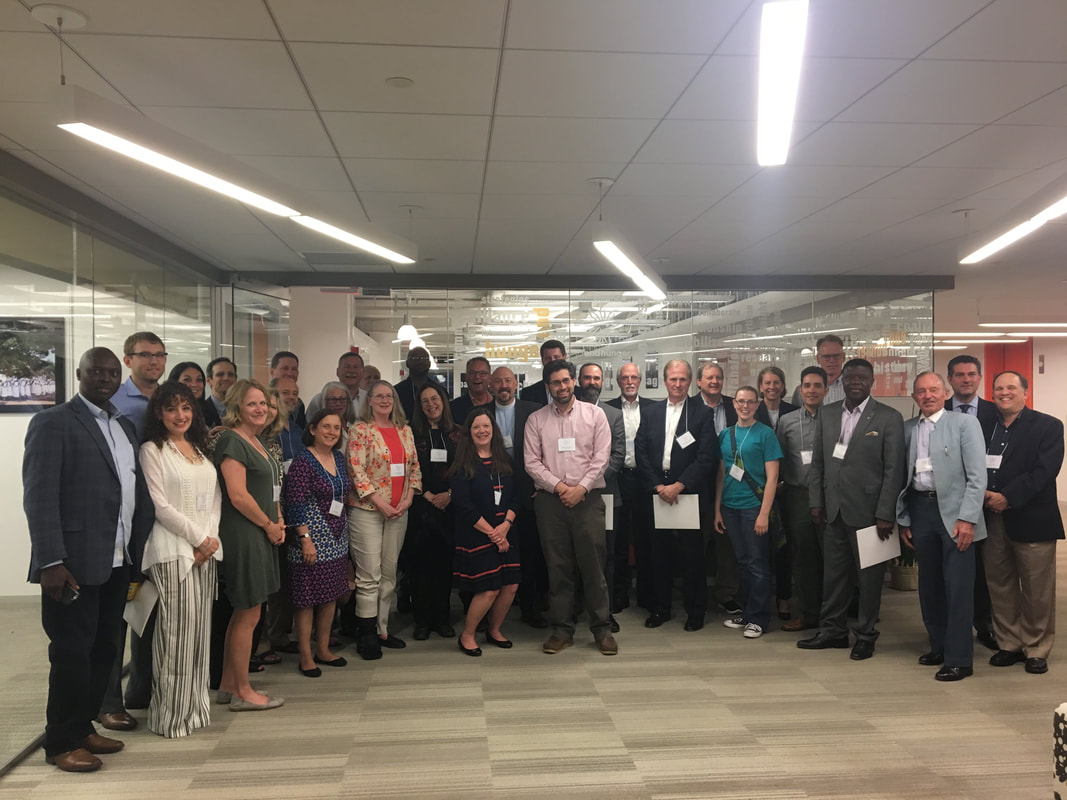
 RSS Feed
RSS Feed